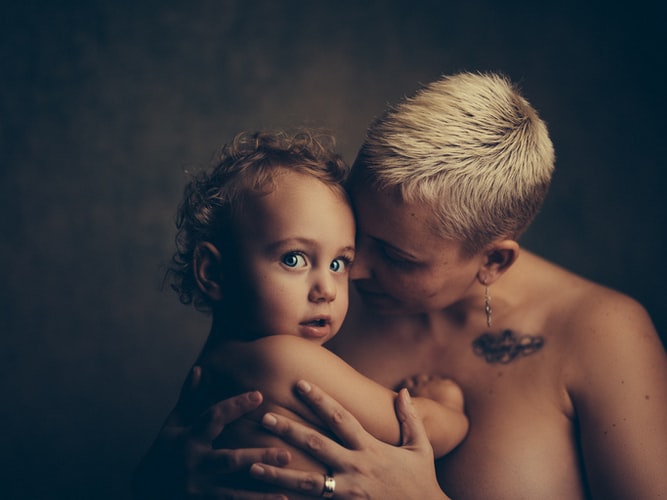
Let us talk about something that still holds a lot of taboo in this world.
What happens when your mother was not a mother, but in fact a wounded woman raising you?
Then, you also inherit her wounds and her pain!
When the woman who gave us the gift of life also happens to be the one who gave us our biggest pain to carry, it becomes a difficult dynamic to navigate for us. And especially around Mother’s Day, this can stir a lot of emotion, shame, and frustration within us women.
We want to love our mother, we do love her—but for many, a part of us also holds resentment and frustration toward her.
The, “I hate you, but I love you” scenario is a reality for many women in this world when it comes to the relationship with our mothers. This inner conflict is far from simple, and comes from what is called the mother wound. The mother wound is, to this day, still a topic that carries a lot of shame, guilt, taboo, and also a lack of awareness.
Let me ask you a difficult question, and promise me that you will try to be honest when you answer, despite how uncomfortable and confronting this question might be:
Was your mother a “healthy mother” or was she a “wounded woman?”
This question can be difficult to answer for several reasons, two of them being:
1. If you were raised by a wounded woman, you might not even be aware of the dysfunction taking place, but simply feel it as a resentment, attachment, or distance between you and your mother.
You might even blame yourself for this feeling, and try to overrule it by discarding it.
2. If your mother was not physically abusing you, it can be difficult to recognize and be aware of the many different nuances of wounding and trauma that can take place.
Here are some examples of what the mother wound and trauma can look like:
>> Giving you too much attention and drowning your feeling of “self.”
>> Living her life through you and taking away your right to find and have your own identity.
>> Not seeing you and your needs, neglecting you through distance and absence.
>> Wanting you to caretake her, and for you to be her parent by meeting her needs, making her feel good and happy, and taking away your right to be a child.
>> A lack of self-care and self-neglect, not modeling how to take good care of yourself in life, and maybe even neglecting your physical and basic needs.
>> Not having strong boundaries, teaching you that you are not in power, creating a foundation of codependency and mistrust within you, instead of showing you how to stand in your power.
>> Not knowing her own worth and allowing herself to be treated badly, teaching and modeling to you low self-esteem, self-judgment, and self-doubt, creating a foundation in you where you accept less than what you should in life.
>> Blaming you for her own pain and living out a victim mentality, passing on an emotional abuse that is too painful for you to carry alone—making you become someone who begins to blame and pass on this pain to others as well.
All of those will be a traumatic experience for a child, and all of this will create a wound within us, a wound which is caused by a mother who herself did not experience having a healthy mother around whilst growing up.
And so, a cycle of pain, trauma, and wounding is created, where women were mothered by wounded women, and became the very same wounded women, birthing children and passing on the wound they themselves came to carry.
This is not an individual trauma, even though it is an individual experience. This wound is a collective one, passed on through generations, as it went unnoticed, unspoken, and unhealed.
In case your mother is or was a wounded woman, you are now one of the many carriers of what is called the mother wound. The mother wound is passed on through generational trauma, and kept alive, and caused by women who through centuries have raised their children from their wounds, who did not know how to step out of the cycle of wounding.
The mother wound is one of the most complicated dynamics within this world, due to the fact that the person we have the strongest connection to in this world, the one who grew us into existence and birthed us, was simultaneously the one we grow to resent the most as she gave us the most pain.
There are a few things I want you to know before you let the feelings of pain and resentment take over, and before you blame yourself, or the women who came before you for you experience of this wound:
Your mother, her mother, and all women with this wound did not have awareness upon it and did not know how to break the cycle. They likely did the best to their abilities as mothers, but we must understand that they were acting from a wound, and that your experience of being exposed to this was painful and valid despite that knowledge.
You beginning to heal this, talk about it, and acknowledge it does not mean that you are betraying, disrespecting, belittling, blaming, neglecting, or abandoning your mother. You are taking ownership, you are breaking the cycle, you are becoming a healthy mother for yourself.
You are entitled to having your own experience of the wound, you are not your mother, and therefore the bravest decision is to step out of the cycle of pain, pause, get awareness, heal, process, and transform the pain.
You may carry the wound, but you also carry the medicine to transform it and to heal it.
Just by you reading this article and by you having this level of awareness, you are taking one step in a new direction. You are breaking the cycle of wounding and generational trauma.
It is okay to love and resent your mother simultaneously, this will most likely be your experience until you give yourself a new experience of mothering yourself in a healed and healthy way. Once you do so, you can also hold the wounded parts within her with love as well as you do it within yourself.
Yet for now, the biggest gift to yourself, to her, and to future generations is for you to feel, heal, and pave a new way for mothering.
~










Read 4 comments and reply